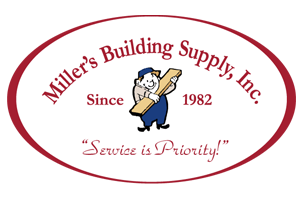
Do You Want to Be a Contractor or a Construction Business Owner?
Many remodelers launch a company without a business plan or any written goals. If that description fits, and if your business is close to the $1 million in sales threshold, or if you want to grow past that milestone, you’re at an important crossroads. You need to decide whether you will remain a contractor or if you will become a construction business owner. Regardless of your choice, you should develop a plan and commit to following through on it.
It’s not that one choice is right and the other is wrong. That’s not the point. Either way, you can make a great living and build a well-respected business. But the business models have different requirements for systems and staffing, and ultimately your exit strategy options will either be limited or wide open depending on your decision.
Remaining a Contractor
As a contractor, you’ll only need to keep yourself and a few others busy and efficient in the field as well as in the office. The systems required to do this are fairly simple, and you can avoid many of the costs and headaches that can accompany having a lot of the overhead that comes with a larger business. You can continue to work with the tools in the field, if that’s what motivates you, and you can work personally with your clients and be the one who both sells them a solution and manages the work to implement it.
At the same time, though, the decision to remain a contractor means that you will wear most of the management-related hats yourself. As a smaller business, you won’t be able to generate the gross profit required to cover the overhead that comes with having middle-management employees. So, remaining a contractor means that everything depends on you, and if you’re not available, everything will come to a standstill. Getting sick or injured, for example, would put a contractor’s business and personal finances at risk.
If you choose to remain a contractor, it’s important that you charge enough and save enough so that you will be able to retire comfortably well before your body can no longer keep up with the physical demands of wearing a toolbelt. Also, selling your business may not be a practical option, or it may not be worth much more than the value of your tools, equipment, and customer list. This is because without you, there isn’t really a business.
Construction Business Owner
The other choice is to become a construction business owner. It will take a lot of work and a lot of learning because, if you’re like most contractors, you know how to remodel a home but know little about building a business. You will have to develop systems and procedures before adding and training employees to use and follow them. You will need to refine the leadership skills that will help you to remove yourself from the day-to-day operations and at the same time create the future leaders of your business. And you will need to put marketing and sales processes in place to help sell and produce enough work to earn the gross profit needed to finance your machine and to pay you well even though you don’t wear a toolbelt.
By becoming a business owner, you will have far more financial and legal responsibilities than a contractor has. If your business is successful, however, that risk is offset by a healthy net profit year after year. And if you are successful at replacing yourself as the leader of that business, you can step away but still get paid, giving you time for yourself or for other endeavors. In my own experience, I also found it very rewarding to see how such a business can benefit the employees who help make it happen.
You Need to Decide
Becoming a construction business owner doesn’t happen overnight, so you need to make a decision. The bottom line is this: Not deciding means you will remain a contractor. If that’s what you want, you’re on your way. But if you want something different, you need to act; otherwise, events will conspire to make the decision for you.
- This article was originally posted on Pro Remodeler Professional Remodeler
- To view this article in it’s original form, Click Here!

